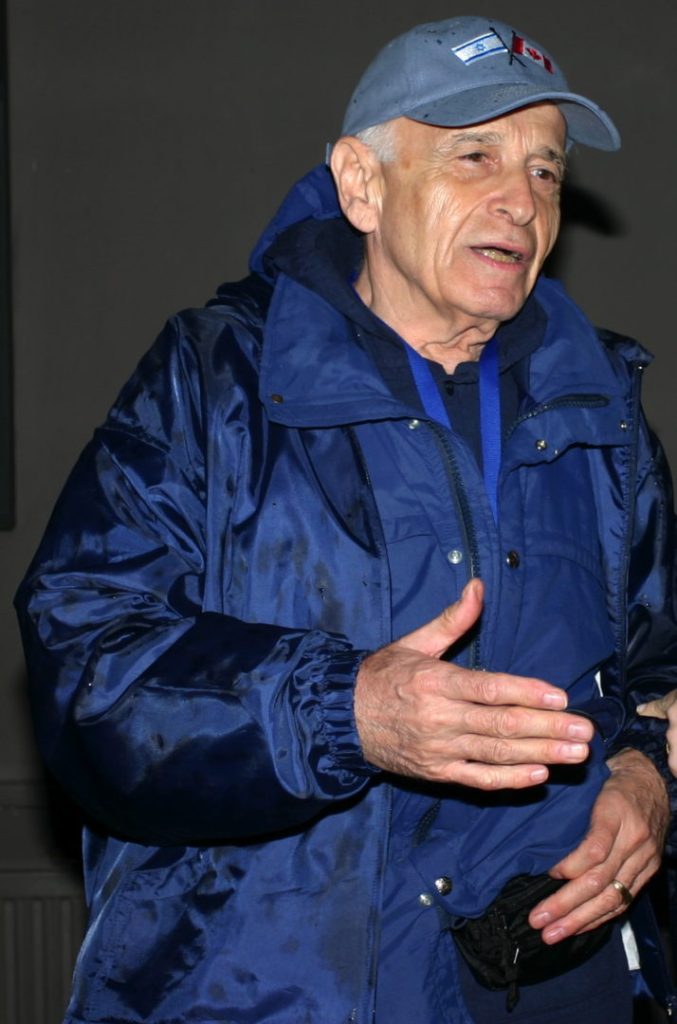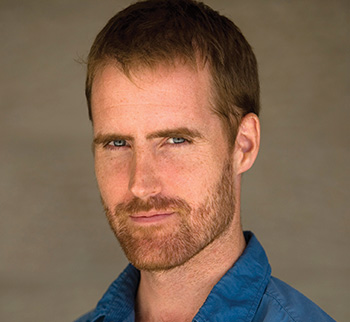Israeli author Matti Friedman, who grew up in Toronto and attended Bialik and USDS Hebrew schools, as well as Mackenzie Collegiate, returned to his hometown last week to attend the 2017 RBC Taylor Prize for Literary Nonfiction – in which his second nonfiction book, Pumpkinflowers, about Israel’s war in Lebanon, had been named to the short list and was therefore eligible for the top prize of $25,000.
In a phone conversation a few days before the awards ceremony, Friedman told The CJN he had always loved to write and had benefited from the influence of a few good creative writing teachers at school in Toronto. “I always had the idea that I was going to do something with writing, and I ended up as a journalist,” he said.
He made aliyah in 1995, lived on a kibbutz, and went into the army. Afterwards he worked for the Jerusalem Report for a few years, then the Associated Press, during which time he got the idea for his award-winning first book, The Aleppo Codex. “As soon as I saw the opportunity to just write books, I seized it, and that’s what I’ve been doing ever since.”
Curiously, the origins of Pumpkinflowers, his second book, actually predate his first book as well as his journalism career. “I was discharged from the army in 2000, right around the time the army pulled out of Lebanon, and I had these experiences in Lebanon that left a great impression on me and I thought I’d like to write about them,” he said. However, the subject matter refused to be shaped into a neat coherent narrative, and so he put the project aside for more than a decade. Then he came at it again, this time with a clearer idea of what he wanted to achieve.
READ: IN PUMPKINFLOWERS, CANADIAN AUTHOR RECOUNTS IDF EXPERIENCES
“I went about it in a different way. I did a lot of interviews and archival research and I tried to get the perspective on these events and to understand why they were important to anybody other than me. And the result of the second incarnation of the effort is Pumpkinflowers.”
Subtitled “An Israeli Soldier’s Story,” Pumpkinflowers seems to describe a new, asymmetrical form of modern warfare that occurred in Lebanon, and has since been echoed in Iraq, Afghanistan, Syria and other places; a form of military engagement in which there’s no victory, even for the side that seems vastly stronger. “In the old days, you’d fight a war and you’d capture the enemy capital and they’d surrender and that was that. It doesn’t work like that any more,” Friedman said.
“These things don’t end in victory, they go on and on. You go in to fight one war and you find yourself fighting another war and your public stops supporting you, and eventually you withdraw; and it’s sort of a template for other wars we’ve seen since then.”
The Hebrew edition of Pumpkinflowers recently appeared in Israel and has been well received, said Friedman, who noted that few, if any, other titles have been written as yet on the Lebanon war. He worked closely with the translator: “I write in English, my mother tongue. I can write in Hebrew but it’s not very good; I don’t have the command of the language that I have in English.”
He’s well along in the writing of his third book about Israel’s first spies, a story of intrigue involving the Mizrachi Jews, the large segment of the Israeli population that came from Syria and Iraq and the rest of the Islamic world.
◊

Max Eisen, a Toronto-based Holocaust survivor from Czechoslovakia, was also in the running for the 2017 RBC Taylor Prize for his memoir, By Chance Alone: A Remarkable True Story of Courage and Survival at Auschwitz.
Eisen arrived in Canada in 1949 as a ward of the Jewish Family and Child Services and had a long and successful career as a manufacturer of vinyl wallets, binders, looseleaf products and other items. He began speaking to audiences about the Holocaust in 1991 and now fulfils as many as 75 speaking engagements each year.
“It was an enormous job and it took me five years,” he said about his book. “I just started to write this movie that was playing in my head. I put it down exactly as I saw it in my mind’s eye.”
In conversation, Eisen seems to downplay the philosophical implication of his chosen title. “Our granddaughter is quite religious, she didn’t like this title – It wasn’t by chance, she said, it was God Almighty who was looking after me. But you know, to get a title for a book is so difficult! And it was only by chance that I survived, really.”
It was also by chance, he said, that he discovered he had a big extended family after the book was published – “and that was a miracle too. Otherwise, I would never have known that my grandfather had siblings here. I mean, I had no idea of our family tree. My life was an upside-down world after the age of 10. But after my book was published last year, I had a phone call from the States, and this chap says, you know, I read your book and I think we are related. And he told me his grandfather’s name and I did remember that name, David Eisen: he was the only sibling of my grandfather that I met . . . . And there was another call a few months ago. So there are Eisens and Eisners, they are all the great-grandchildren of our great-grandfather.”
The winner of the RBC Taylor Prize was announced on March 6. Ross King won for his book Mad Enchantment: Claude Monet and the painting of the Water Lilies. Along with Pumpkinflowers and By Chance Alone, there were two other worthy books in the running: Marconi: The Man Who Networked the World, by Marc Raboy, and This Is Not My Life: a memoir of love, prison, and other complications, by Diane Schoemperlen.
Pumpkinflowers was published by McClelland and Stewart (Signal). By Chance Alone was published by HarperCollins Ltd.







